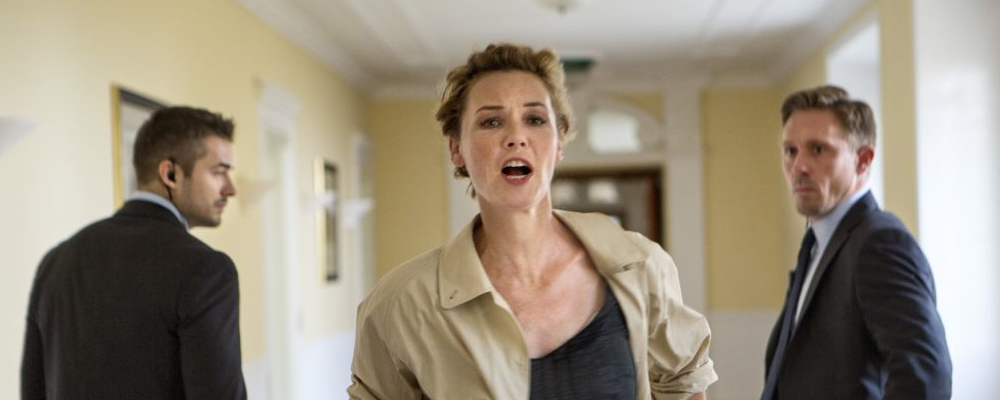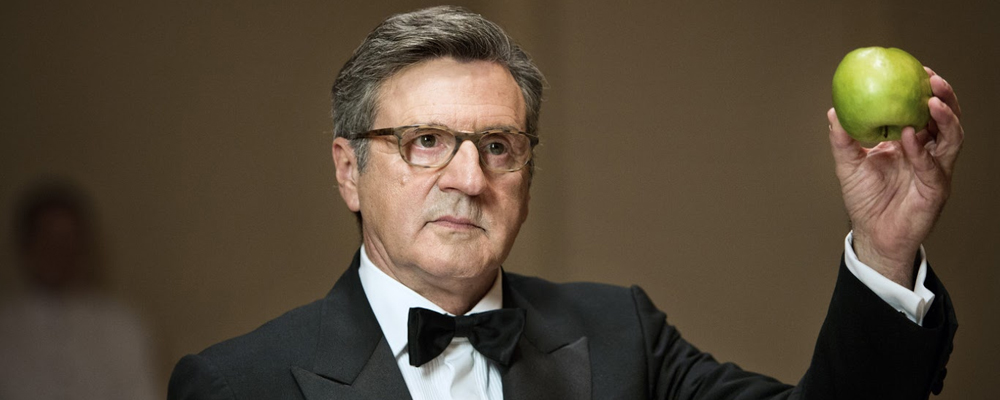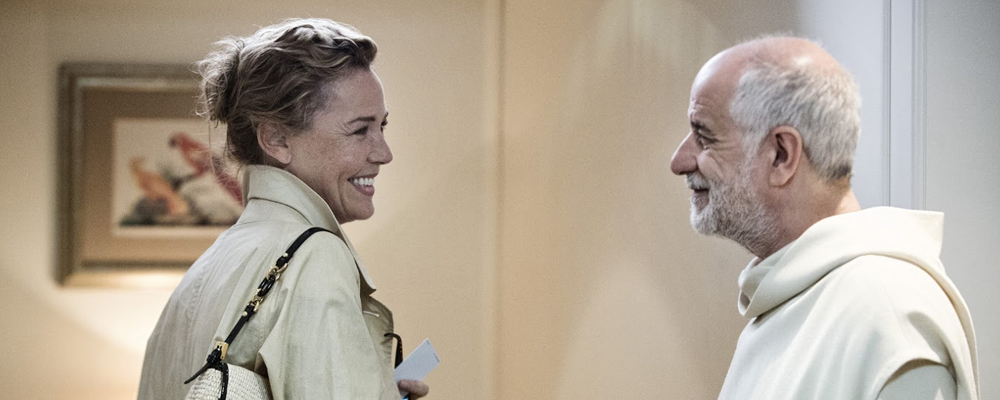‘The Confessions’ Takes On the Sins of the World Economists
Tony Sokol
Economic thrillers like “The Big Short” (2015) and “Money Monster” (2016) are on the rise in America as financial uncertainties become life and death struggles. European director Roberto Andò adds a metaphysical twist to a financial whodunit in his international production “Le confessioni” (The Confessions).
This is a vast story told on a very small stage: a luxury hotel in Heiligendamm, Germany, during an informal but public meeting of the G8. At first it seems members of the economic cartel that presides over presidents and kings are actually not so different than the audience. They endure acoustic guitar fingerings Lou Reed would have rolled his eyes at during social hour; they have furtive affairs with those most convenient; they like to swim; they occasionally go to confession. Economic ministers confess their differences from the rabble they minister over. The G8 decides the fate of the world through cold predictive equations.
One of the guests invited to the meeting is Italian monk and author Roberto Salus (Toni Servillo). Voodoo is a religion. Hoodoo is the magic that is practiced in that religion. For the Group of Eight, economics is the religion, money is their magic, and it is a shade darker than black. These men and women have no conscience to speak of even as they hold people’s lives in their hands.
Daniel Roché (Daniel Auteuil) makes his confession to Salus because the monk holds everything Roché enjoys in disdain. St. Augustus’s confession was a cry from the soul, Salus points out. The International Monetary Fund director’s confession is a proud whimper from a wealthy mathematician. On the morning after the confession, Roché is found in a chair with a bag over his head, dead from an apparent suicide. Even though the head of the Secret Service, Mark Klein (Moritz Bleibtreu), considers Salus a prime suspect, the mystery isn’t who killed Roché, but what secrets were confessed in that final meeting.
Salus is enigmatic and inscrutable. He doesn’t care about passing judgement because he has more pressing concerns on his mind. Like the 10,000 bird songs he keeps on the same digital recorder the Secret Service believes captured the confession of the IMF head. That doesn’t mean the man who has given his life to God is without an understated humor. He tells a famous musician to shut up by reminding him how lucky he is not to need words to communicate art.
The monk took a vow of silence. Several of the characters make note of this. His appearance is prefaced by it. The Secret Service detail discusses it while watching him check his belongings at the metal detector. Everyone discusses it, including the monk, who really shouldn’t be saying anything, except maybe for an hour a day or whatever is prescribed by canon. But there he is talking about his vow of silence without a trace of irony. He even mentions it to a dog and to a bush that borders his balcony from his nosy next-door neighbor, Claire Seth (Connie Nielsen). Claire is very suspicious for a children’s novelist, peering through keyholes like she’s looking for Voldemort himself. She is very mysterious but projects no mystery, except maybe why the hotel staff would open the luxuriously endless indoor pool after hours for a midnight swim.
Water is a character in the film. The hotel sits on a dirt beach in a spa town on the coast of the Baltic Sea. There is an impromptu harassment meeting in the pool that is made more suspenseful by the forced movement of the camera catching reflections in the water. The Italian Minister (Pierfrancesco Favino) has given up on optimism. He believes that when people try to make the world a better place they wind up making it worse. Banks and the mafia answer to no one, he admits, but he doesn’t let that responsibility weigh on him. Salus pits silent optimism against powerful cynicism. The ministers look at the people who are affected by their financial maneuverings with a scientific detachment.
The score by Nicola Piovani is peppered with catchy melodies. It is lush and reminiscent of 60s cinema. The entire production feels like it was made in another time even though it is obviously current. Andò started his career as an assistant director under such classic filmmakers as Federico Fellini, Francesco Rosi and Francis Ford Coppola.
Both Palermo, Sicily-born Andò’s 2000 debut feature “Il manoscritto del Principe” (“The Prince’s Manuscript”), and his 2013 comedy “Viva la liberta!” (“Long Live Freedom”) won Nastro d’Argento awards. Andò finds small human moments of spiritual reminders. The owner of the hotel has Alzheimer’s disease. This makes him pure enough for the monk to entrust him with as important a secret as the evil plan Roché whispers before making his last withdrawal. Too much of made of the plan during the film. Whatever the secret is, it makes the monk sick.
Before he took his vows, Roberto Salus trained as a mathematician. He calculates the end of the world using the Black Swans formula. In the end, Roberto’s faith is affirmed while the most powerful financial minds question what money is. There are worse failures than financial ones. “The Confessions” fails to detail the horrible, apocalyptic international conspiracy at the center of the film and it feels like writers Angelo Pasquini and Andò might not have had the imagination or heart to compute all the data. This is the kind of human error the monk could appreciate.
“The Confession” opens in theaters on July 7.



